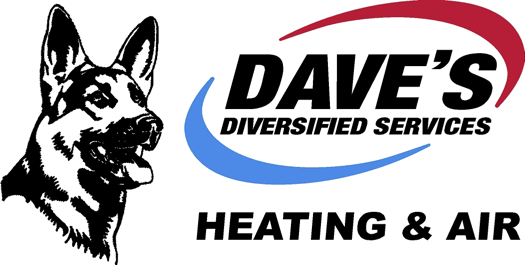
We spend lots of time indoors. In reality, the Environmental Protection Agency (EPA) has estimated being indoors makes up 90% of our days. Having said that, the EPA also has found your indoor air can be three to five times worse than outdoors.
That’s since our residences are tightly sealed to boost energy efficiency. While this is great for your heating and cooling bills, it’s not so great if you’re among the 40% of the population with respiratory allergies.
When outside ventilation is insufficient, pollutants like dust and volatile organic compounds (VOCs) may get captured. As a result, these pollutants may worsen your allergies.
You can boost your indoor air quality with fresh air and regular housework and vacuuming. But if you’re still struggling with symptoms while you’re at home, an air purifier may be able to help.
While it can’t remove pollutants that have gotten trapped in your couch or carpet, it might help freshen the air circulating around your home.
And air purification has also been scientifically proven to help reduce some allergic symptoms, according to the American College of Allergy, Asthma and Immunology. It could also be helpful if you or a loved one has a lung condition, including emphysema or COPD.
There are two options, a portable air purifier or a whole-home air purifier. We’ll discuss the advantages so you can figure out what’s correct for your house.
Whole-House Air Purifier vs. Portable Air Purifiers
A portable air purifier is for one room. A whole-house air purifier accompanies your home comfort system to clean your entire home. Some types can purify on their own when your home comfort unit isn’t on.
What’s the Best Air Purifier for Allergies?
Look for a model with a High Efficiency Particulate Air (HEPA) filter. HEPA filters are used in hospitals and provide the greatest filtration you can get, as they trap 99.97% of particles in the air.
HEPA filters are even more beneficial when combined with an ultraviolet (UV) germicidal light. This mighty mixture can wipe out dust, dander, pollen and mold, all of which are standard allergens. For the greatest in air purification, consider equipment that also has a carbon-based filter to decrease household smells.
Avoid using an air purifier that generates ozone, which is the main element in smog. The EPA cautions ozone may irritate respiratory problems, even when released at minor concentrations.
The Allergy and Asthma Foundation of America has made a checklist of questions to consider when purchasing an air purifier.
- What can this purifier take out from the air? What doesn’t it take out?
- What’s its clean air delivery rate? (A bigger number means air will be purified more rapidly.)
- How frequently does the filter or UV bulb need to be replaced]? Can I do that on my own?
- How much do new filters or bulbs cost?
How to Decrease Seasonal Allergy Symptoms
Want to receive the {top|most excellent|best] results from your new air purification equipment? The Mayo Clinic recommends doing other steps to reduce your exposure to things that can trigger seasonal allergies.
- Stay inside and keep windows and doors shut when pollen counts are high.
- Have other family members trim the lawn or pull weeds, since this work can worsen symptoms. If you are required to do this work on your own, consider using a pollen mask. You should also rinse off right away and put on new clothes once you’re completed.
- Avoid drying laundry outdoors.
- Use air conditioning while at home or while in the car. Consider installing a high efficiency air filter in your residence’s heating and cooling unit.
- Balance your house’s humidity saturation with a whole-house dehumidifier.
- Hardwood, tile or linoleum are the ideal flooring materials for lowering indoor allergens. If your house has carpet, use a HEPA filter on your vacuum cleaner.
Let Our Pros Manage Your Indoor Air Quality Requirements
Ready to take the next step with installing a whole-house air purifier? Give our specialists a call at 540-636-3396 or contact us online to schedule an appointment. We’ll help you locate the right system for your residence and budget.
